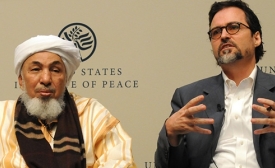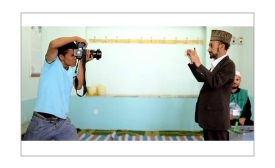united states institute of peace



To reach people in a conflict, sometimes low-tech is the best tech. The local communities in South Sudan’s Greater Upper Nile region have borne the brunt of the politically driven violence that began in December 2013. Since then, nearly 2 million people have been forced from their homes. Farmers have been unable to plant their crops due to continuing insecurity, increasing the threat of famine, and outbreaks of disease like Cholera have struck refugee camps and conflict-affected areas alike. In the midst of this, communication has broken down.
In the months leading up to the first round of presidential elections April 5, and again now in the run-up to the runoff vote, tens of thousands of Afghans have been meeting up in schools, police stations, homes, public parks, women’s prisons, shelters and other communal spaces in villages throughout the country to watch and participate in these mobile theater performances. They're aimed at encouraging Afghans to believe in the power of their vote — in the first democratic transfer of power in Afghanistan after 30 years of war — and to stand up to the Taliban.
Ms. Sonenshine is currently the Executive Vice-President of the United States Institute for Peace (USIP), but was nominated by President Obama for Under Secretary for Public Diplomacy in November. Once confirmed, she will lead the country’s public diplomacy efforts abroad...







